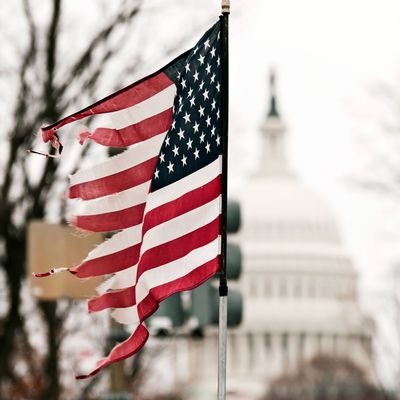
If Russia elected me America’s next president, I would move immediately to ban two pundit clichés: “America is a failing state” and “the solution is to put country before party.” Not because they’re lazy writing — though they are — but because they suggest the writer needs to get out and see the world. Instead of a travel ban, my platform would include forced international travel for pundits and political writers — to see how the troubles we’re having fit into democracy’s global discontents.
Yes, a president firing the FBI Director who is leading an investigation of his presidential campaign is deeply problematic. It suggests the rule of law is compromised. The appearance that Comey was fired to block or slow the FBI probe into Russia’s role in the 2016 elections — and prevent damage to the president’s administration and his allies — smacks of using national institutions for personal gain. Social scientists who study democracy highlight those as two big warning signs on the path to democratic collapse. So yes, you should be really worried. But no, we’re not there yet.
Freedom House, a watchdog group that ranks democracy in every country every year, has been warning since 2005 of a trend among governments in established democracies tweaking existing law and procedures to illiberal ends. The Trump administration brings Washington to this party, but late. We’re joining countries like Poland, where the incumbent government has used dubious measures and constrained transparency to assert control over the media, allow civil servants to be fired without cause, and curtail parliamentary debate over the budget.
Retired General Michael Hayden, former director of the CIA and the National Security Agency, wrote this week, “It’s beginning to feel a little bit like Nicaragua around here.” Why Nicaragua? Because last fall the president ran unopposed for a third term, with his wife as his VP. Because the state is consistently ranked among the world’s most corrupt. We’re also following in the tracks of richer nations like Israel, where the incumbent government has undercut civil-society groups and dismantled state-owned media, and Hungary, where the government is working aggressively to close a private university. We’re lagging far behind Turkey, where a democratically elected president has presided over a series of executive reforms that systematically sideline his opposition — and enshrined those undemocratic measures with popular votes held under progressively less open conditions. In Thailand, the urban elite has been able to team up with the army to overturn election results it doesn’t like over the course of a decade … while international commerce and tourism continue largely undisturbed. And who could forget the Philippines, where the president brags about extrajudicial killings.
To see what an actually failing state looks like in 2017, come closer to home — to Venezuela. Its government came to power in elections two decades ago and has steadily closed the democratic space and eroded the rule of law since. By every measure, Venezuela is now failing, and catastrophically — its citizens are losing an average of 19 pounds a year through malnutrition, its institutions have collapsed, and violent deaths of protestors are a daily occurrence.
No one intends to end up like Venezuela. No, not even the leadership of the other political party, whichever one you despise.
So it is fair to ask the experts and pundits, “How do we fix this while our state is not failing, while our legislature is still functional, our military is not subordinate to our politics, and our media’s voice is still loud?” What we know from the history of healing divided societies, from success stories like postwar Germany and Japan, to the former Warsaw Pact nations, to abject failures like Iraq, is that the engine of progress is enlightened self-interest.
Rwandan or Kentuckian, human beings seek outcomes that give their self-defined communities a future within a broader nation. Politics shift, and problematic rulers lose their footing, when leaders of factions, tribes or parties signal to their supporters that their parochial interests will be served within rules and structures that also serve the larger population. That’s putting party within nation, not before it, and it’s why that cliché is so misleading. That’s the heart of the negotiating processes that ease out long-serving dictators and successfully end election standoffs. In our two-party system, a president can be checked only when his own party is willing to participate actively in the checking — because its members believe they have a political future afterward.
But the other lesson to take from overseas — which Americans, ironically, often miss — is that we’re not powerless until our leaders change their minds, or nation-builders arrive from outer space. What makes political elites decide that they have better futures with the rule of law than with personalized authoritarian rule? It would be nice if the answer were prayer and contemplation, or snarky tweets. But it’s angry voters — usually from the middle class, and often women. The good news about not being a failed state is that American mothers need not live up to the courage of West African women who marched naked to curse their warrior sons. The definitive study of the last century of nonviolent social movements concluded that a tipping point comes when 3.5 percent of the population engages. So this Mother’s Day, give your mom a guide to civic activism — or let her give you one — instead of that flower bouquet.
Heather Hurlburt (@natsecHeather) directs New America’s New Models of Policy Change initiative and has held foreign-policy positions in Congress, the White House, and State Department.





























